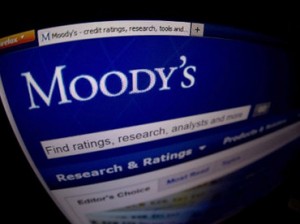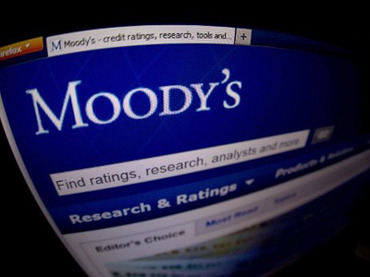
(AFP Photo)
Recent economic lifelines pledged by Gulf countries to Egypt have been deemed “credit positive” despite their “temporary” nature, credit rating agency Moody’s stated in an official report.
A few days after the military deposed former president Mohamed Morsi following nationwide protests, Saudi Arabia and the United Arab Emirates pledged a total of $8bn in aid. A day after the lenders’ aid announcements, Kuwait also pledged an aid package of $4bn to support Egypt’s troubled economy.
Qatar, meanwhile, had granted Egypt $2.5bn in loan last January, and extended a further $3bn in May by agreeing to buy Egyptian bonds at 3.5% interest.
“These packages are credit positive because they will have the immediate effect of offsetting pressures on Egypt’s balance of payments by substantially bolstering official foreign exchange reserves,” the report stated, explaining that investors prefer a more democratically-acting government, which will possibly increase foreign direct investments and aid in the coming months.
“Funds placed in the central bank would lift reserves to more than $20 billion, a level last seen in late 2011,” it added, referring to the $36bn on the eve of the revolution.
Egypt’s current net foreign reserves, necessary to purchase the country basic imports, primarily wheat, have reached $14.9bn this June.
The agency further stated that the aid will significantly contribute to reduce Egypt’s widening budget deficit, which reached EGP 205bn in 2012/13, up 48% from the same period in the previous fiscal year. The burden of the state’s budget deficit has fallen heavily on local banks, whose ability to continue to fund the government has become stretched.
Nonetheless, the report emphasisedthat despite the positive outcome of the Gulf aid on Egypt’s economy, “the funding provides only temporary relief from the political and economic challenges in Egypt.”
“Aid from the Gulf states alone, unless accompanied by a strong economic policy framework, is unlikely to bolster confidence enough to reinvigorate domestic and foreign investment to pre-revolution levels,” the report explained.
It stated that although the total Gulf support surpasses the proposed $4.8bn loan package from the International Monetary Fund (IMF), fiscal reforms associated with the program are still essential to reduce deficit and debt refinancing requirements.
Another release by the agency stated that, despite the gulf aid contributing positively to Egypt’s economy, real risks remain.
The release cited continued sectarian violence “triggered by heightened political uncertainty amid the recent regime change – a credit negative.” Moody’s also pointed out that country’s weak economic growth and fiscal position, and its elevated unemployment and inflation rates remain “alarming”.
Egypt’s annual inflation jumped significantly to 9.8% in June compared to 8.2% in May and 8.1% in April, raising consumer prices to 0.9%, the Central Agency for Public Mobilisation and Statistics (CAPMAS) reported. This month’s inflation level is the highest since 2011, when levels registered 10.4% in July.
In March, Moody’s cut Egypt’s credit rating by one notch from B3 to Caa1, which it said meant it now sees nearly a 10% chance of Egypt defaulting on its debt over the next year and slightly less than a 40% chance of a default within five years.
It was Moody’s sixth downgrade of the country since January 2011, at the height of the uprising that toppled former president HosniMubarak.
Earlier this month, Fitch Ratings, the global rating agency, downgraded Egypt’s issuer default ratings and country ceiling from B to B-, following the unrest that took place after the military deposed former president Mohamed Morsi amid mass demonstrations.
The global firm cited “heightened uncertainty” and “inflamed political tensions” as reasons behind the economic turbulence in the country, both likely to jeopardise its economy and creditworthiness.




